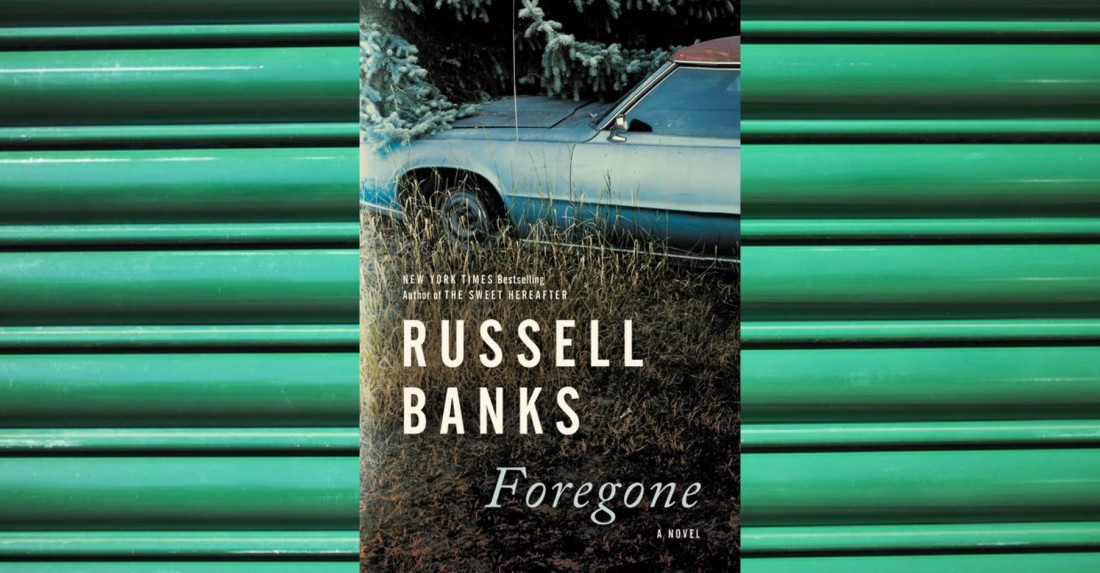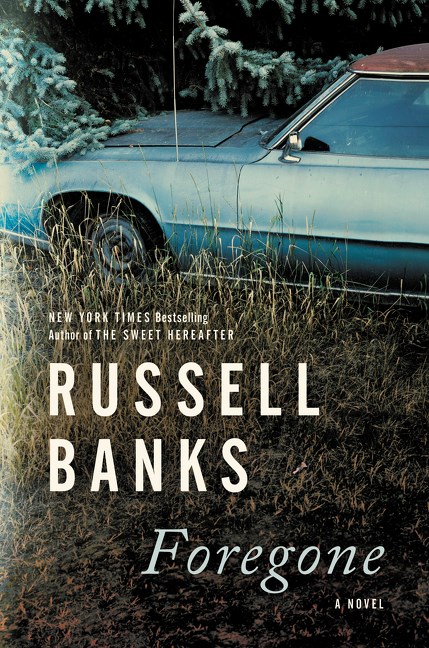One of the most important choices a fiction writer makes is point of view — who is telling the story? It can be equally important for the writer to know to whom the story is being told, even if this choice is usually invisible to the reader. This is one of the lessons I remember from a workshop I took with Russell Banks some fifteen years ago in a Mexican village. He suggested then that a writer might imagine lying in bed at night and telling a story to a sibling in the bed across the room. How would that affect the story being told, the details included, the language used, or the trajectory of the plot? Would the story change if the listener is the narrator’s mother? Or a total stranger? This lesson came back to me as I read Banks’s latest novel, Foregone, because it is one of the points he’s making here: audience matters.
The primary narrator of the novel is Leonard Fife, a documentary filmmaker who moved from the United States to Canada some forty years earlier. Although still mostly lucid, he is dying of cancer, and he is cooperating with some of his former film students who have received funding to film an interview with him in which he would answer questions about his illustrious career, starting with a groundbreaking anti-Vietnam War film he made soon after arriving in Canada. Fife, though, has other ideas about the project. He doesn’t care about his career at this point, and the films he’s made are just a distraction. Instead, he wants to use this opportunity to tell his life story before he dies. It’s to be a kind of confession of his misdeeds committed in America and, crucially, before he met and married his current wife, Emma.
Fife attempts to explain to his former students the importance of audience for a storyteller: “Who is he telling it to? The answer shapes how he tells it and what he leaves out and what he includes.” This is why he wants Emma to be present. Never mind that Emma doesn’t want to hear this confession. Leo insists that she remain in the room during the filming because, he says, given his track record, he won’t tell the truth if she isn’t listening. So she stays, and listens. It isn’t clear to the reader that Leo is telling the truth anyway, however, even though his admissions against interest, as a lawyer would put it, seem credible. From the outset he appears to be a most unreliable narrator, one with a long history of lying to his loved ones. His tale meanders in time as he makes shocking revelations about a previous wife and family he had abandoned, and then another previous wife and family.
At each new bombshell, Emma insists that he stop, or that the filmmakers stop. She’s worried about Leo, but she claims to also be worried about his reputation when his confession is made public. In defense of Leo, she claims he’s lying or confused, owing to his cancer or the drugs he’s taking. It’s confabulation, she argues, the result of his condition. She’s the one who abandoned her marriage and children, not Leo. So who is telling the truth?
It’s almost impossible to tell, and ultimately, it doesn’t matter. Did Leo really hang out with Joan Baez and Bob Dylan in a Boston coffee house back in the day? Did he really manipulate his draft physical in order to get a 4-F classification (I had visions of Arlo Guthrie and “Alice’s Restaurant”)? Did he really join a high school buddy in stealing the buddy’s father’s car to drive across the country? Furthermore, it isn’t clear that his recollections are even voiced, or if the memories remain in his mind like a film only he can see. At one point, Fife, believing that they’ve been at it for hours, thinks he hears talk of a lunch break, when in fact it’s still morning and only an hour or so has passed since they began. At another point, he thinks he’s talking, but no one can hear him.
The portrait of the artist as a young man — the portrait Fife paints of himself — is not an attractive one. Has he redeemed himself? Does he gain the reader’s sympathy not just because he’s now an invalid, but because for forty years he’s been, apparently, faithful to Emma and a much-admired filmmaker speaking truth to power? All of his confessed misdeeds pre-date his arrival in Canada, suggesting that he changed dramatically when he became a filmmaker and found his voice. Still, he needs to confess in order to justify his existence. “And if,” he tells himself, “your past is a lie, a fiction, then you can’t be said to exist, except as a fictional character.”
If he doesn’t confess, he believes, it will be as if he never existed. “He can’t atone for the person he was and forgive himself for the sins and crimes he committed without first changing who he was and is.”
FICTION
Foregone
By Russell Banks
Ecco Press
Published March 2, 2021


